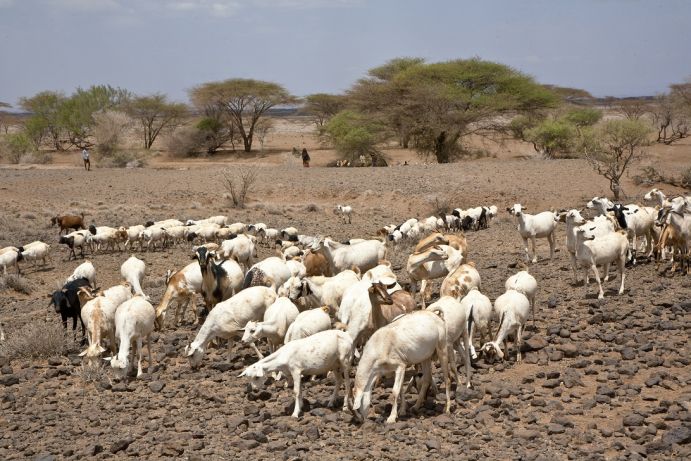POLISES - Global food security policies and their social-ecological side effects in regions prone to global change
Lowering the number of people worldwide suffering from hunger is an urgent challenge for the future. Therefore global food security policies endowed with large financial support are designed with focus on smallholders’ resilience in developing countries. However, studies show that these instruments are often not harmonised and have unintended socialecological side effects, in particular under combined effects of global change.

Project Objectives
The objectives of POLISES are
(1) to enhance the urgently needed knowledge base of impacts of global food security policies on social-ecological resilience of smallholding farmers at the local level under different processes global change,
(2) to advance the design of such instruments to be appropriate for the most vulnerable groups and
(3) to support social learning on global food security.
The methodological approach used is dynamic social-ecological modelling, in particular agent-based modelling. It allows taking into account micro-scale interactions of households, interlinkages between social and ecological system components and crossscale effects of global policies (through their locally installed instruments) on local food security. A selected set of policy instruments from several domains is investigated in different depths, separately and in combination, building up on case studies in Morocco and Ethiopia. Emphasis lies on on food policy instruments supporting risk-coping, in particular microinsurances, environment-related policies and land use policies influencing access regimes. The findings of this work will additionally contribute to a prototype of an educational web-based game on food security. This research endeavour is carried out in close exchange with policy advisors for food security on the German and European level. Therewith the outcomes of POLISES are expected to be an important contribution at the science-practice interface to tackle the challenge of global food security in a sustainable way.
Project Management
Dr. Birgit Müller
Helmholtz Centre for Environmental Research – UFZ
Department of Ecological Modelling
Permoserstr. 15
04318 Leipzig
Germany
Tel. +49 341 2351 708
E-Mail: birgit.mueller@ufz.de
Homepage
Last updated on



